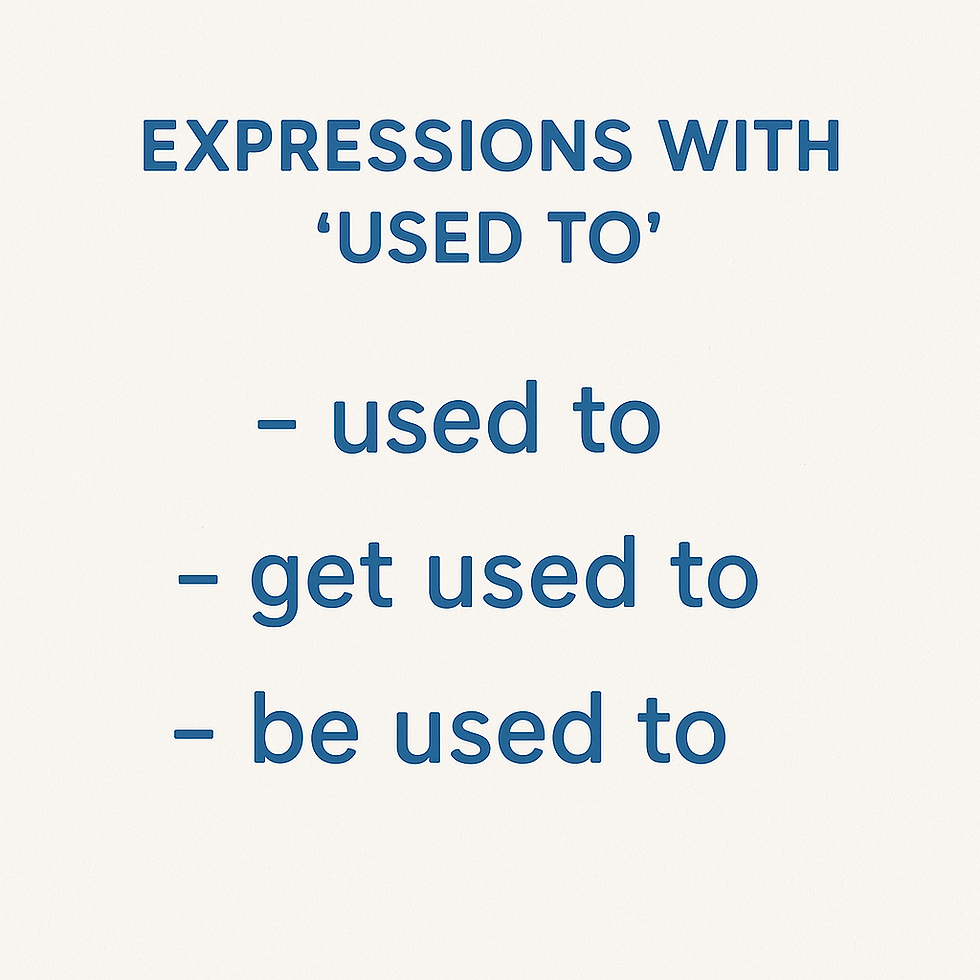Get Used to It! Mastering “Used to,” “To Get Used to,” and “To Be Used to”
- James Batchelor

- Jul 17, 2025
- 2 min read

Let’s be honest — these three expressions can be confusing.If you’ve ever said “I am used to go to the gym” or “I used to waking up early”, you’re not alone.
But here’s the good news: once you understand the difference between time, change, and comfort, things become much clearer.
“Used to” = A Habit in the Past
Structure: Subject + used to + base verb (infinitive)
Use it to talk about things that were true in the past but are no longer true today.
Examples:
I used to live in New York.
She used to eat meat.
Think: past habits or states that don’t exist anymore.

“To Get Used To” = The Process of Adapting
Structure: Subject + get used to + noun / verb + -ing
Use it to talk about the transition — when something is new or strange, but you're learning to manage it.
Examples:
I got used to driving on the left.
He’s getting used to his new job.
Think: adjustment, change, or transformation.
“To Be Used To” = Already Comfortable With It
Structure: Subject + be used to + noun / verb + -ing
Use it to express that something now feels normal and no longer requires effort.
Examples:
I’m used to waking up early.
She’s used to the cold weather.
Think: familiarity, comfort, and no resistance.
Compare All Three
Expression | Meaning | Example |
Used to | Past habit or state | I used to smoke. |
To get used to | Becoming comfortable | I’m getting used to Paris. |
To be used to | Already comfortable | I’m used to city life. |
Practice Activity
Complete the sentences using the correct form of: used to / be used to / get used to
When I first moved to Paris, I had to __________ the metro system.
I __________ live in a small town before moving to the city.
Now I __________ taking the metro every day.
He never __________ spicy food, but now he eats it all the time.
I’m __________ working late hours — it’s part of the job.
She is __________ driving on the right side of the road after moving back to Europe.
They __________ go to the gym every morning when they lived in Madrid.
We are slowly __________ the new software.
Are you __________ speaking in front of large groups?
My parents __________ write letters by hand.
Answer Key
get used to
used to
am used to
used to
am used to
getting used to
used to
getting used to
used to
used to
Conclusion
These expressions can be tricky at first, but once you focus on the time frame — past habit, change, or comfort — you’ll feel more confident using them.
Want to practice them in real conversation?
Join my English course with CPF in Vincennes, take private tutoring in English, or follow my E-learning program — all designed and taught by me, an experienced English teacher in Vincennes.

Comments